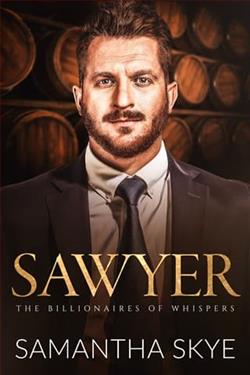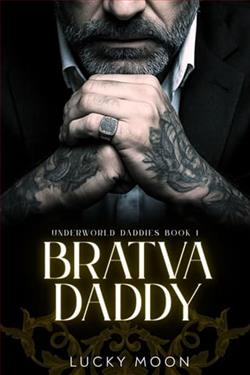Page 13 of One Night in Glasgow
“I’m guessing most of you have seen a certain video posted this morning.” I let a self-deprecating smile cross my face. “Those of you who haven’t, will probably check it out during the coffee break.”
Nervous laughter scattered through the crowd. A woman in the front row glanced down at her phone and then back up at me, her cheeks reddening.
“So, let’s address the elephant in the room, shall we? Yes, that was me stumbling out of a pub last night. Yes, I’d had a few drinks. Yes, I was with a woman who wasn’t my wife.” I held up my left hand, wiggling my bare ring finger. “Mainly because I don’t have a wife.”
More laughter, stronger this time.
“And now you’re all sitting there thinking one of two things. Either ‘What a hypocrite, telling us how to live our best lives when he’s out there acting like a college freshman on spring break.’” I mimicked, looking disapprovingly over imaginary glasses. “Or you’re saying, ‘Thank God, he’s human after all.’”
I moved away from the podium, beginning to pace the stage.
“And that’s actually what I’m going to address today. Not the video, though my publicist is probably having a heart attack right now.” I gestured to Danny in the wings, who gave me an enthusiastic thumbs-up. “I want to talk about theimmense pressure we all face to appear perfect in a world where everyone has a camera in their pocket.”
I pointed to a young man in the third row who was, ironically, filming me on his phone.
“How many of you have ever had a moment you’re glad wasn’t captured on film?” I raised my own hand. “A mistake you’re grateful for isn’t immortalized on the internet?”
Hands went up across the room, hesitantly at first, then with growing confidence.
“Look around,” I said, dropping my voice to almost a whisper, so they’d have to concentrate to hear me. “Every single one of us has moments we’re not proud of. The difference is most of you get to mess up in private.”
I walked to the front of the stage, making eye contact with people in the front row.
“Here’s something they don’t tell you about success,” I said, my voice gaining intensity. “The higher you climb, the smaller your margin for error becomes. One mistake… one human moment… and suddenly everything you’ve worked so hard for your entire life, feels like it’s hanging by a thread.”
People were nodding now, some taking notes.
“But here’s the real truth,” I continued, pacing again. “Your worth isn’t determined by your worst moment. Or your best, for that matter.”
I stopped center stage.
“In my book, I talk about the Three P’s of Perseverance: Purpose, Practice, and Perspective.” I counted them off on my fingers. “But there’s a fourth P I’ve never talked about before. One I’ve struggled with personally.”
I let the silence hang for a beat.
“Perfection.” The word dropped like a stone. “The toxic pursuit of an impossible standard.”
Something shifted in the room. People were sitting up straighter, exchanging glances.
“We curate these perfect social media feeds. We hide our struggles. We airbrush our flaws. And for what?” I shook my head. “So, we can feel inadequate when we scroll through everyone else’s highlight reels?”
A woman in the back called out, “Preach!”
“That video of me?” I pointed toward the back of the room, as if the footage were playing there. “That’s real life, folks. Messy. Unscripted. Human. And hey… I refuse to apologize for it.”
I walked back to the podium, picking up my water bottle and taking a long drink.
“Now, don’t get me wrong. I’m not advocating for bad behavior or suggesting actions shouldn’t have consequences.” I set the bottle down with a deliberate thunk. “They absolutely should, and they do. But there’s a difference between accountability and shame. Between learning from mistakes and letting them define you.”
For the next forty minutes, I wove between my prepared material on resilience and this new theme of authentic imperfection. I told stories I’d never shared publicly before, like the time I bombed so badly at my first speaking gig that people asked for refunds; the client who fired me because I was “too real” for their corporate image; the crushing imposter syndrome that still hits me at 3 AM sometimes.
With each vulnerable admission, I felt the room drawing closer, the energy building. This wasn’t the polished, TED Talk-ready performance they’d expected. It was raw. It was risky. And judging by the nodding heads and furious note taking, it was resonating.
I wrapped up by returning to where I’d started.
“So, the next time you see someone fall, remember you’re witnessing their most public moment, not their defining one.” I let my gaze sweep across the room one last time. “Judge less. Connect more. And give yourself the same grace you’d offer a friend.”
The final words were followed by a pause for a moment before the room burst into applause. People rose to their feet, some nodding emphatically. It wasn’t the thunderous, rock-star reception I sometimes received after my polished keynotes, but something better, something genuine. As I looked out at their faces, a weight lifted from my shoulders. Maybe Danny was right. This unexpected scandal wasn’t the career-ending disaster I’d feared.















